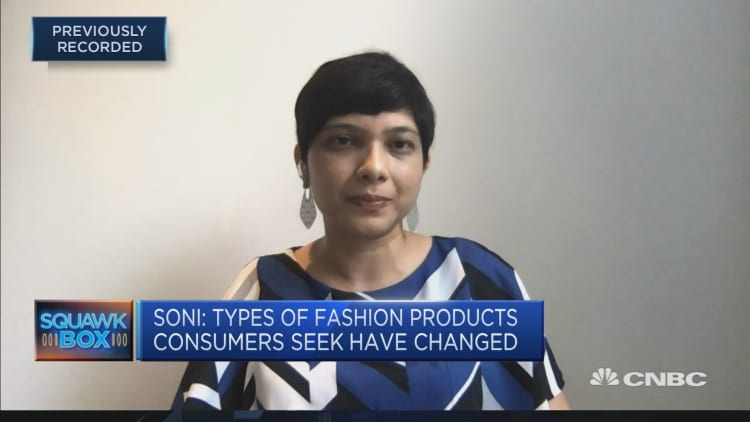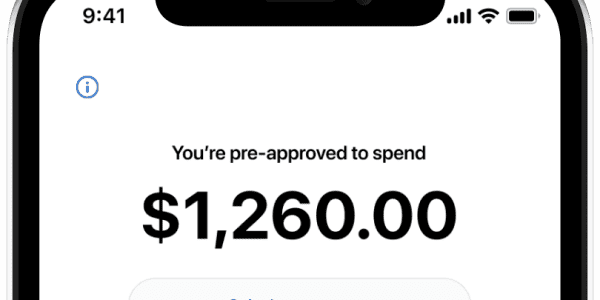The cosmetics industry has been hard hit by the coronavirus pandemic, with forced store closures driving down sales and people staying in posing a new threat to the need for cosmetics products. But new technology strategies are allowing beauty companies to reach customers.
Ulta Beauty, one of the biggest success stories in the sector over the past decade, said earlier this month that openings of new stores, which had been suspended in the first quarter, will pick up again in August, with 30 new locations in the U.S. and Canada.
But there are losses along with the new locations: Ulta is planning to close 19 stores permanently this year. At the beginning of 2020, the retailer — which operates a total of over 1,200 stores and had opened 13 new stores alone in the fourth quarter, including several in Texas — anticipated a net new-store-opening total of 75 for the year.
Changes in consumer spending at a time when Ulta was heavily investing in growth, as well as one unique aspect of its store model — offering a wide range of in-store beauty services such as haircuts — are among factors that have pressured the beauty company during the pandemic. Year-to-date, shares of Ulta — which was among the top stocks in the S&P 500 over the past decade into 2020 — have fallen from a peak near $300 to roughly $200.
Ulta does have a growing online presence and loyalty program offering discounts. Curbside pickup, online order and pickup in store, and the Ulta Beauty app are an even bigger focus now.
"Having the stores close has a big impact on the business," said David Swartz, analyst at Morningstar. "They have an online operation which is obviously very important given the current situation, but with the model based on in-store sales, it was growing but never really was the No. 1 focus of the company. ... It has become the No. 1 focus of the company — they had to change their marketing, had to change everything."

On Ulta's first-quarter earnings call, CEO Mary Dillon indicated that company sales dropped 35.3%. For LVMH, parent company of beauty retailer Sephora, perfumes and cosmetics sales dropped 18% in the same quarter.
For many retailers and cosmetics brands that have relied mostly on in-store sales, apps and an increasing online presence are among the plans to keep customers engaged and give them some of the benefits of shopping in brick-and-mortar stores.
L'Oreal and Estee Lauder have implemented virtual beauty tools — L'Oreal's allows a consumer to try on over 100 shades of products, ranging from lip products to hair colors and eye products. Estee Lauder has a virtual try-on tool that allows shoppers to sample foundation shades and lip shades. Estee Lauder has implemented iPads in stores so customers can try on shades while shopping in person, an effort to ensure safety measures and prevent actual sampling of products.
Despite the drop in sales and decreased consumer spending, the cosmetics industry will recover from the drastic impact of Covid-19, according to Rebecca Scheuneman, a Morningstar consumer sector analyst, and some of the new online tools will help. "It's been a very resilient, high- growth industry, and I do expect over the next year, when we have an approved vaccine and consumer patterns get more normalized, the demand for these products will come back; consumers will get back to wearing makeup on a regular basis," Scheuneman said.
"They have these great tools already available on the market, so consumers are adapting to this and they have the first- mover advantage," Scheuneman said of the outlook for L'Oreal and Estee Lauder.
Ulta Beauty has implemented its GLAMlab tool, an application available on mobile devices or the Ulta.com website, that allows an individual to try on over 4,000 products from a variety of brands that Ulta carries in stores.
"Since the crisis began, guest engagement with the tool has increased nearly five times, and more than 30 million shades have been tested virtually," Dillon said during the first-quarter earnings call. "We're also making changes in our salons to promote and protect safety, including offering services by appointment only, performing associate and guest wellness checks, using protective wear, increasing cleaning between appointments and implementing social distancing between stations."

For QVC and HSN, television networks that sell beauty and cosmetic products, the business can benefit from the decline of in-store shopping.
"Presenting curated selections of products via interactive, video-rich shopping experiences across multiple platforms gives us unique insight into consumer behavior and enables us to be exceptionally responsive to sudden shifts," said Rob Robillard, vice president at Qurate Retail Group, the parent company of QVC and HSN and six other retail brands.
But the pandemic forced changes on their business models, too. The video-commerce retailers adjusted their programming to create an interactive experience for customers. QVC has been hosting Instagram Live sessions such as #TuesdayNightBeauty and #SelfCareSunday, giving consumers events to look forward to during lockdowns, along with an opportunity to ask questions live about beauty or about specific products. QVC and HSN were also forced to shift their on-air television operations with guests joining through Skype rather than coming into studios.
I do expect over the next year, when we have an approved vaccine ... consumers will get back to wearing makeup on a regular basis.Rebecca Scheunemanconsumer sector analyst, Morningstar
Laura Geller, founder of Laura Geller Cosmetics, which is sold on QVC, has been going on Facebook Live every Friday during the pandemic to test out products and answer questions of those watching and seeking advice.
"It's interesting. These people are thanking me for keeping it real and having an escape, to see a familiar face to trust in the questions they are asking," Geller said. "They can come and ask a person, and that's such a comfort during this time."
QVC and HSN plan to continue with the interactive programs to attract new customers and increase engagement across TV and social media.
"As we continue to navigate an evolving new normal, we believe that demonstrability and engaging video-rich experiences across a variety of digital platforms will be increasingly important in retail and in the beauty space," Robillard said via email.
Morningstar's Scheuneman said the digital transformation of beauty was pre-Covid, but it will now accelerate, though she does not believe it will supersede the in-store experience permanently.
"That transformation was already happening; companies were already adapting; they've already been adjusting to this channel shift. The pandemic accelerates that short-term, but I do expect brick-and-mortar shopping to return," she said.






